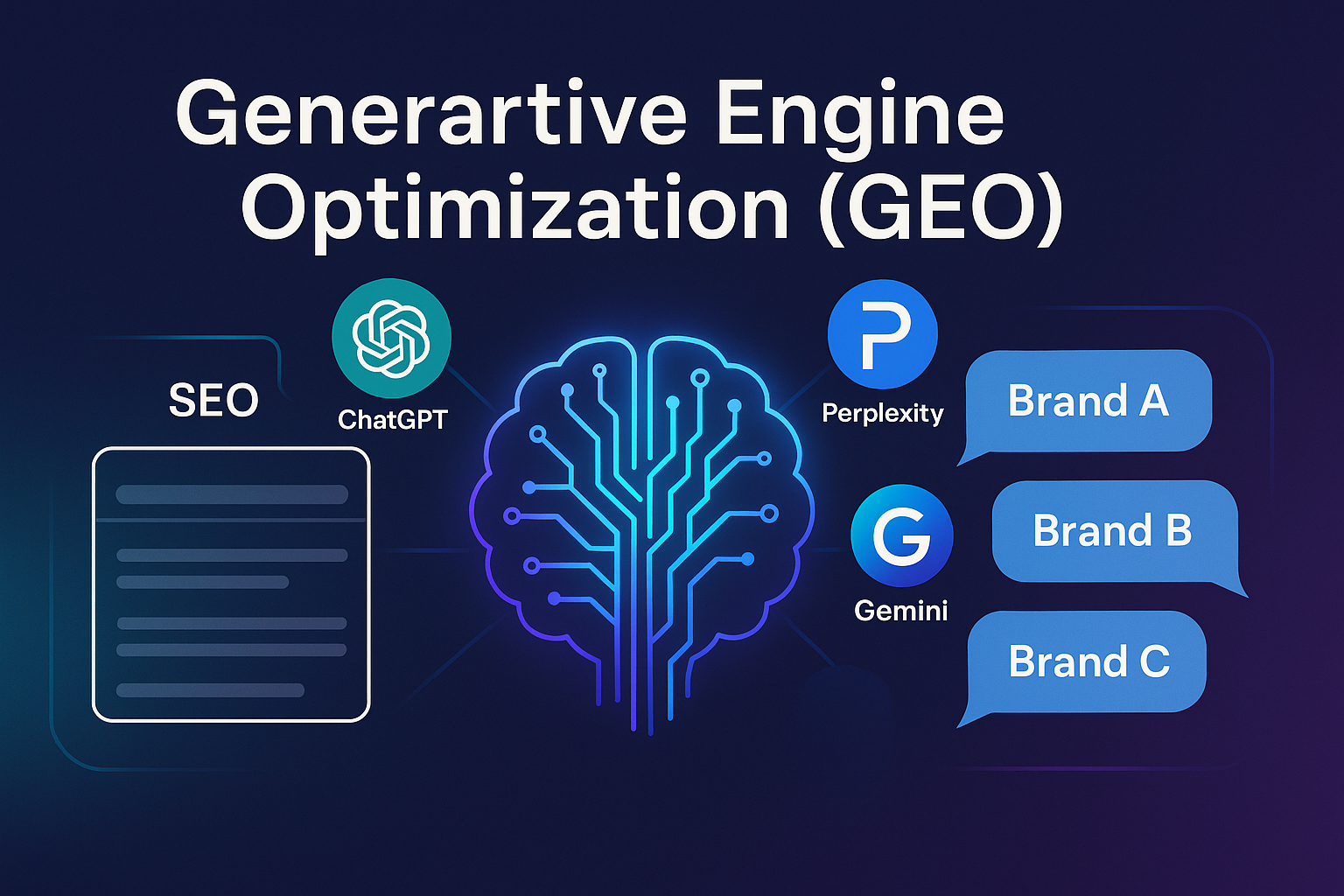Generative engines, like those powering AI tools such as ChatGPT or Google Gemini, rely on fundamentally different ranking factors compared to traditional search engines. Here’s a breakdown of the primary ranking factors for generative engines:
Question: What the ranking factors for generative engines?
Answer: Generative Engines give preference to content that is comprehensive and deep, contextually relevance, trustworthy and credible, structured and easy to parse, popular with users, up-to-date, multimodal, conversational, agree upon, and intent specific.
1. Content Depth and Comprehensiveness
- Why It Matters: Generative engines aim to provide nuanced, complete answers to user queries. They prefer content that explores a topic deeply and addresses multiple dimensions of the user’s intent.
- How It Differs from Search Engines: Traditional search engines may favor shorter, keyword-rich content for specific queries. Generative engines prioritize detailed, well-rounded answers that minimize the need for follow-ups.
- Optimization Tip: Create long-form, well-researched, and structured content that answers common and complex questions comprehensively.
2. Contextual Relevance
- Why It Matters: AI engines analyze not just the keywords but the full context of a query, including user-specific factors like previous interactions and implied meaning.
- How It Differs from Search Engines: While search engines optimize based on relevance to query terms, generative engines focus on semantic connections and broader context.
- Optimization Tip: Use semantic SEO techniques, include related concepts, and write content that flows naturally and conversationally to match user intent.
3. Trustworthiness and Credibility
- Why It Matters: Generative engines need to avoid “hallucinations” (false or misleading information). They prioritize content from authoritative and trustworthy sources.
- How It Differs from Search Engines: Generative engines are stricter about the credibility of sources, as they can’t provide disclaimers or links for verification in real time.
- Optimization Tip: Build authority with clear citations, expert authorship, and references to reliable sources. Meet E-E-A-T (Experience, Expertise, Authority, Trustworthiness) guidelines.
4. Structured and Clear Information
- Why It Matters: Generative models favor content that is easy to parse and integrate into their responses. Structured content helps AI summarize or directly use the information.
- How It Differs from Search Engines: Search engines prioritize structured data mainly for featured snippets or specific rich results, whereas generative engines rely on clear structure for accuracy and usability.
- Optimization Tip: Use headings, bullet points, tables, and schema markup to organize information. Ensure your content has logical flow and clarity.
5. User Engagement Signals (Implicit)
- Why It Matters: Generative engines are trained to prefer content that has historically satisfied users, inferred through interactions and engagement data.
- How It Differs from Search Engines: While search engines track explicit engagement metrics like clicks or bounce rates, generative engines rely on datasets that include content deemed “valuable” in prior user interactions.
- Optimization Tip: Create engaging, helpful, and well-received content. Focus on readability, tone, and practical takeaways to enhance user satisfaction.
6. Recency and Relevance
- Why It Matters: Generative engines prioritize content that reflects up-to-date information, especially for fast-changing topics like news, technology, or trends.
- How It Differs from Search Engines: Search engines may still rank older, high-authority content; generative engines actively downrank outdated information.
- Optimization Tip: Regularly update content to reflect current data, statistics, and insights. Highlight recent developments or events when relevant.
7. Multimodal Content Compatibility
- Why It Matters: Generative engines are increasingly incorporating multimodal capabilities, analyzing text, images, and videos to craft comprehensive answers.
- How It Differs from Search Engines: Search engines display multimodal results (e.g., videos, images, maps), but generative engines extract data directly from multimedia sources for a richer response.
- Optimization Tip: Provide rich media content like videos, infographics, and images with detailed metadata and captions to make them accessible to AI systems.
8. Conversational Tone and Accessibility
- Why It Matters: Generative engines are designed to interact conversationally, so content that matches this tone is more likely to align with AI-generated answers.
- How It Differs from Search Engines: Search engines reward formal and keyword-driven content; generative engines lean toward conversational, easy-to-understand language.
- Optimization Tip: Write in a natural tone and address questions conversationally. Avoid overly technical jargon unless the audience demands it.
9. Cross-Referencing Across Trusted Sources
- Why It Matters: Generative engines validate information by cross-referencing multiple credible sources to ensure reliability and accuracy.
- How It Differs from Search Engines: While search engines link to several pages for verification, generative engines rely on pre-training datasets and real-time cross-validation.
- Optimization Tip: Ensure your content aligns with widely accepted facts and aligns with other authoritative sources. Avoid controversial or unsupported claims.
10. Query Intent Adaptability
- Why It Matters: Generative engines tailor responses based on different types of intent (informational, transactional, navigational, etc.) more dynamically than search engines.
- How It Differs from Search Engines: While search engines display multiple intent-targeted results on the same SERP, generative engines provide a single, tailored response per query.
- Optimization Tip: Create content targeting various intents (e.g., how-tos, comparisons, lists) and use context-specific phrases to signal the intent clearly.
Final Thoughts:
While traditional SEO focuses on ranking for specific search engine algorithms, Generative Engine Optimization (GEO) involves creating content that AI considers trustworthy, comprehensive, and contextually relevant. The key is to think beyond keywords and align your content with user needs, delivering value that AI models can confidently present in their responses.
By adapting to these new ranking factors, you can position yourself to thrive in an era where generative engines play a central role in search.
{ “@context”: “https://schema.org”, “@type”: “QAPage”, “mainEntity”: { “@type”: “Question”, “name”: “What are the ranking factors for generative engines?”, “text”: “What are the ranking factors for generative engines?”, “answerCount”: 1, “acceptedAnswer”: { “@type”: “Answer”, “text”: “Generative Engines give preference to content that is comprehensive and deep, contextually relevant, trustworthy and credible, structured and easy to parse, popular with users, up-to-date, multimodal, conversational, agreed upon, and intent-specific.” } } }


